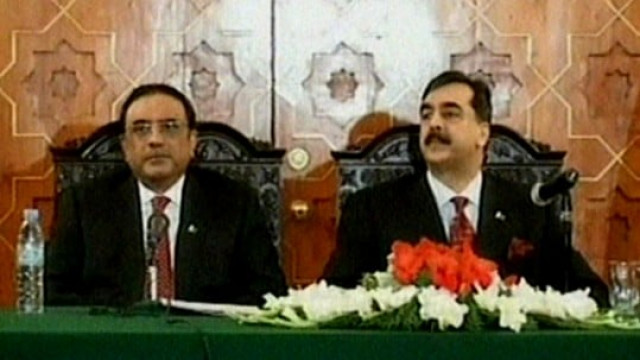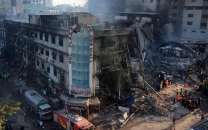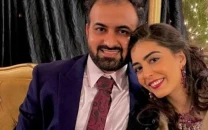Political reforms: A century later, some rights for the tribals
President signs two orders, granting more judicial rights to residents, and allowing political parties to operate.

Political reforms: A century later, some rights for the tribals
More than a century after it was introduced in its current form, the government amended the draconian law that currently governs the tribal areas to include provisions that take into account some basic civil rights and allow for greater political participation by allowing parties to operate in the Federally-Administered Tribal Areas (Fata).
The move aims to lessen the grip of militancy in the semi-autonomous region which has become home to an assortment of militants.
On Friday, President Asif Ali Zardari signed two orders that set into motion what may be the most comprehensive changes to the Frontier Crimes Regulations (FCR) since it was introduced in 1901. The new laws will be amendments to the FCR and the 2002 Extension of Political Parties Order.
(Read: Making nonsense of Fata)
The reforms are meant to curtail the power of government officials in the region to arbitrarily imprison people. The FCR famously stripped tribal citizens of three basic rights – appeal, wakeel, daleel (the right to appeal their detention, the right to legal representation, and the right to present reasoned evidence.)
Under the unreformed FCR, the tribal areas were under the direct jurisdiction of the president. In practise, it has been governed by political agents – civil servants, usually from the district management group or police, who ran the area on behalf of the government and reported to the Khyber-Pakhtunkhwa governor.
Political agents appointed jirgas (tribal councils), which decided all disputes in the areas according to ‘rewaj’ – tribal customs codified into law by the British in the early part of the 20th century.
These laws allow for collective punishment: if one person is found guilty of a crime, their whole tribe was subject to punishment and could even see their property confiscated for failure to pay fines levied on them by the jirga. There was also no right of appeal.
(Read: Crying out for justice)
Political agents could even send people to prison for three years – or even indefinitely – if they determined that a person was a threat to public order, a decision that also could not be appealed. Under Article 247 of the constitution, no laws in Pakistan apply to the tribal areas “unless the president of Pakistan so directs.” President Zardari has apparently decided to exercise his powers over the tribal areas and amended many of the arcane laws.
For instance, any person accused of a crime must now be brought forth before the authorities within 24 hours rather than being locked away indefinitely as was previously done. The power of arbitrary arrest has also been curtailed.
The laws of collective punishment have also been diluted. Women, children below the age of 16 and those above the age of 65 will no longer be subject to collective punishment provisions and the extent to which the male adults of the tribe would be held responsible has also been changed to make it a step-wise process.
Critically, no person in Fata can now be deprived of their property without being provided compensation in accordance with market rates. This change restricts the government’s powers of property seizure to the same extent in the tribal areas as in the ‘settled’ districts of Pakistan.
Cases must now be disposed of within a fixed timeframe and, for the first time in the history of the tribal regions, there will now be a right of appeal through a two-tier system that will include the newly created Fata Tribunal, which will have the same status as a provincial high court, according to the president’s spokesperson Farhatullah Babar.
Underneath the Fata Tribunal will be an appellate authority, which will comprise a commissioner and a dedicated judicial additional commissioner, to be appointed by the Khyber-Pakhtunkhwa governor. The appellate authority will be the first place where Fata residents can appeal decisions made against them.
A new section in the FCR has been added to protect citizens against false accusations: if a person is proven to have been accused falsely, they will be entitled to compensation.
For the first time in history, the political agents’ utilisation of funds available to them will now be subject to audit by the auditor-general of Pakistan, just like any other government department.
A provision has been added to allow for inspections of jails by the Fata tribunal, the appellate authority and the political agent to help prevent the mistreatment of prisoners.
The second order signed by the president allows political parties – subject to regulations yet to be framed – to operate within the tribal areas and solicit votes from the people there. Fata is currently represented by 12 members in the National Assembly and 8 senators (elected by those 12 MNAs). Until now tribal lawmakers were technically independents. Though some have been supported by political parties, the parties themselves were not allowed to operate in the tribal regions.
(Read: Jirga held for launching political process in tribal areas)
The Pakistan Peoples Party-led government has been trying to amend the British-era law almost since the first day it came into office in March 2008. Prime Minister Yousaf Raza Gilani had even said in his maiden speech as leader of the house in the National Assembly that his government would abolish the FCR.
On August 12, 2009, the president held a meeting with various stakeholders which outlined the contours of the reforms needed in the tribal areas, though it was left up to the president as to when they would be enacted.
Published in The Express Tribune, August 13th, 2011.



















COMMENTS
Comments are moderated and generally will be posted if they are on-topic and not abusive.
For more information, please see our Comments FAQ